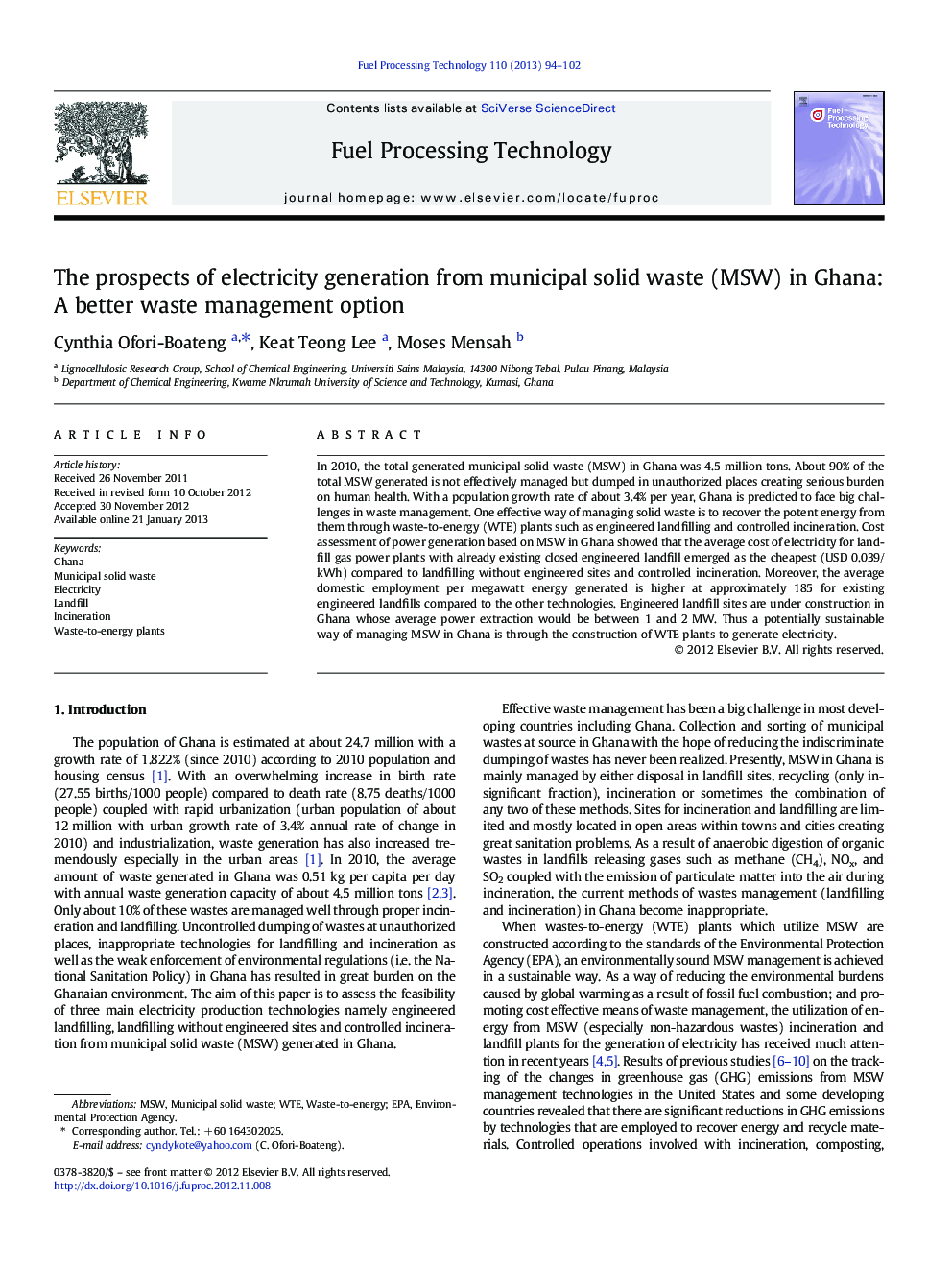| Article ID | Journal | Published Year | Pages | File Type |
|---|---|---|---|---|
| 209985 | Fuel Processing Technology | 2013 | 9 Pages |
In 2010, the total generated municipal solid waste (MSW) in Ghana was 4.5 million tons. About 90% of the total MSW generated is not effectively managed but dumped in unauthorized places creating serious burden on human health. With a population growth rate of about 3.4% per year, Ghana is predicted to face big challenges in waste management. One effective way of managing solid waste is to recover the potent energy from them through waste-to-energy (WTE) plants such as engineered landfilling and controlled incineration. Cost assessment of power generation based on MSW in Ghana showed that the average cost of electricity for landfill gas power plants with already existing closed engineered landfill emerged as the cheapest (USD 0.039/kWh) compared to landfilling without engineered sites and controlled incineration. Moreover, the average domestic employment per megawatt energy generated is higher at approximately 185 for existing engineered landfills compared to the other technologies. Engineered landfill sites are under construction in Ghana whose average power extraction would be between 1 and 2 MW. Thus a potentially sustainable way of managing MSW in Ghana is through the construction of WTE plants to generate electricity.
► Waste management is a serious challenge in Ghana as its population keeps increasing. ► MSW generated in Ghana could produce 1.5–2.0 GWh electricity/year. ► Electricity generation from MSW is a better option for waste management in Ghana. ► Electricity generation from engineered landfills is the most economical option.
